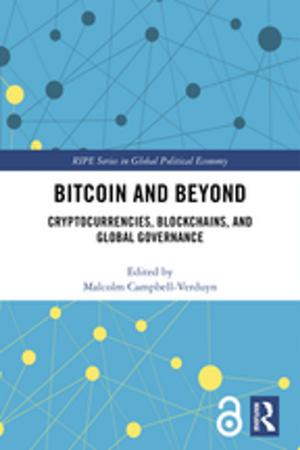Crime in the Digital Age
Controlling Telecommunications and Cyberspace Illegalities
Nonfiction, Social & Cultural Studies, Social Science, Crimes & Criminals, Criminology| Author: | Russell Smith | ISBN: | 9781351525060 |
| Publisher: | Taylor and Francis | Publication: | February 6, 2018 |
| Imprint: | Routledge | Language: | English |
| Author: | Russell Smith |
| ISBN: | 9781351525060 |
| Publisher: | Taylor and Francis |
| Publication: | February 6, 2018 |
| Imprint: | Routledge |
| Language: | English |
Willie Sutton, a notorious American bank robber of fifty years ago, was once asked why he persisted in robbing banks. "Because that's where the money is," he is said to have replied. The theory that crime follows opportunity has become established wisdom in criminology; opportunity reduction has become one of the fundamental principles of crime prevention.
"The enormous benefits of telecommunications are not without cost." It could be argued that this quotation from Crime in the Digital Age, is a dramatic understatement. Grabosky and Smith advise us that the criminal opportunities which accompany these newest technological changes include: illegal interception of telecommunications; electronic vandalism and terrorism; theft of telecommunications services; telecommunications piracy; transmission of pornographic and other offensive material; telemarketing fraud; electronic funds transfer crime; electronic money laundering; and finally, telecommunications in furtherance of other criminal conspiracies.
However, although digitization has facilitated a great deal of criminal activity, the authors suggest that technology also provides the means to prevent and detect such crimes. Moreover, the varied nature of these crimes defies a single policy solution. Grabosky and Smith take us through this electronic minefield and discuss the issues facing Australia as well as the international community and law enforcement agencies.
Willie Sutton, a notorious American bank robber of fifty years ago, was once asked why he persisted in robbing banks. "Because that's where the money is," he is said to have replied. The theory that crime follows opportunity has become established wisdom in criminology; opportunity reduction has become one of the fundamental principles of crime prevention.
"The enormous benefits of telecommunications are not without cost." It could be argued that this quotation from Crime in the Digital Age, is a dramatic understatement. Grabosky and Smith advise us that the criminal opportunities which accompany these newest technological changes include: illegal interception of telecommunications; electronic vandalism and terrorism; theft of telecommunications services; telecommunications piracy; transmission of pornographic and other offensive material; telemarketing fraud; electronic funds transfer crime; electronic money laundering; and finally, telecommunications in furtherance of other criminal conspiracies.
However, although digitization has facilitated a great deal of criminal activity, the authors suggest that technology also provides the means to prevent and detect such crimes. Moreover, the varied nature of these crimes defies a single policy solution. Grabosky and Smith take us through this electronic minefield and discuss the issues facing Australia as well as the international community and law enforcement agencies.















